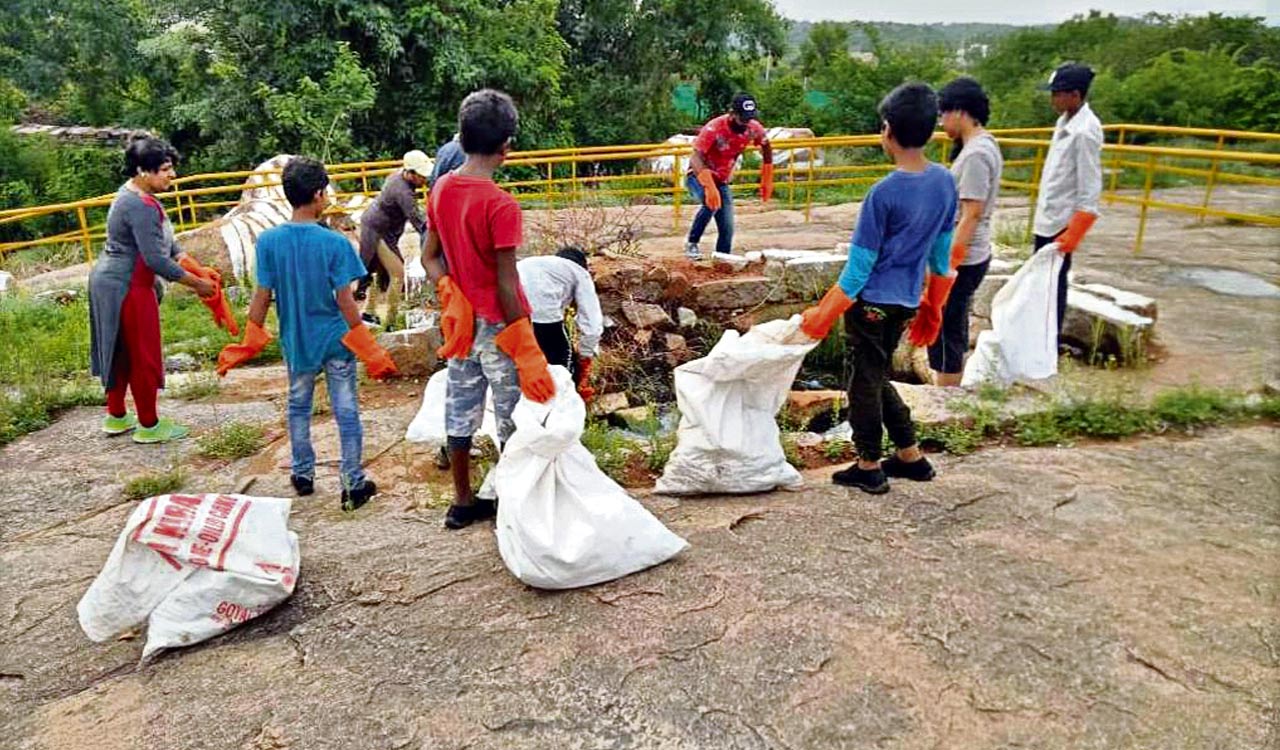Supported by Telangana government, Gandipet Welfare Society for Zero Waste not only collects and segregates but also processes around 800 to 1,000 tons of garbage every month
Published Date – 08:00 AM, Sun – 3 September 23

Gandipet Welfare Society for Zero Waste is behind the initiative.
Hyderabad: For the last eight years, every weekend, a team of nature-loving volunteers in the Gandipet area meet up around six in the morning. And the motley crew comprising school and college students, local residents, and morning walkers spend the next four hours picking up trash.
Once they clean the area, they have breakfast in the very place that was once an eyesore, demonstrating what a trash-free land can be.
Leading this initiative is the Gandipet Welfare Society for Zero Waste. Supported by the State government, the organisation not only collects and segregates but also processes around 800 to 1,000 tons of garbage every month. Their commitment towards deploying only the most sustainable methods to process the waste has resulted in the area becoming a waste-free zone.
It all started when the group first cleaned the shores of the Gandipet Lake. Although they were suggested to dump all the trash in a nearby landfill, they chose not to as it would result in land pollution. Having found no place to properly discard the waste, the team began to look for solutions.
“We met MA&UD Minister KT Rama Rao and requested him to give us a piece of land where we can set up a processing unit. He directed the Ranga Reddy District Collector and the dump yard in the area was handed over to us,” says one of the founding members of the organisation, Rajashree Pinnamaneni.
The team met experts and decided to compost the waste. They use a pollution board-approved incinerator which burns the waste at 900 degrees, resulting in zero pollution. Only five per cent of the waste turns into ash, which is used to make bricks. Noticing their efforts at the Gandipet unit, they were given land and permission for four other units at Vattinagulapally, Aziznagar, Khanapur, and Yenkepalle.
“There were only five of us when we started. Today, we are around 100 and we have five units here in Telangana and one in Tamil Nadu,” adds Rajashree.


